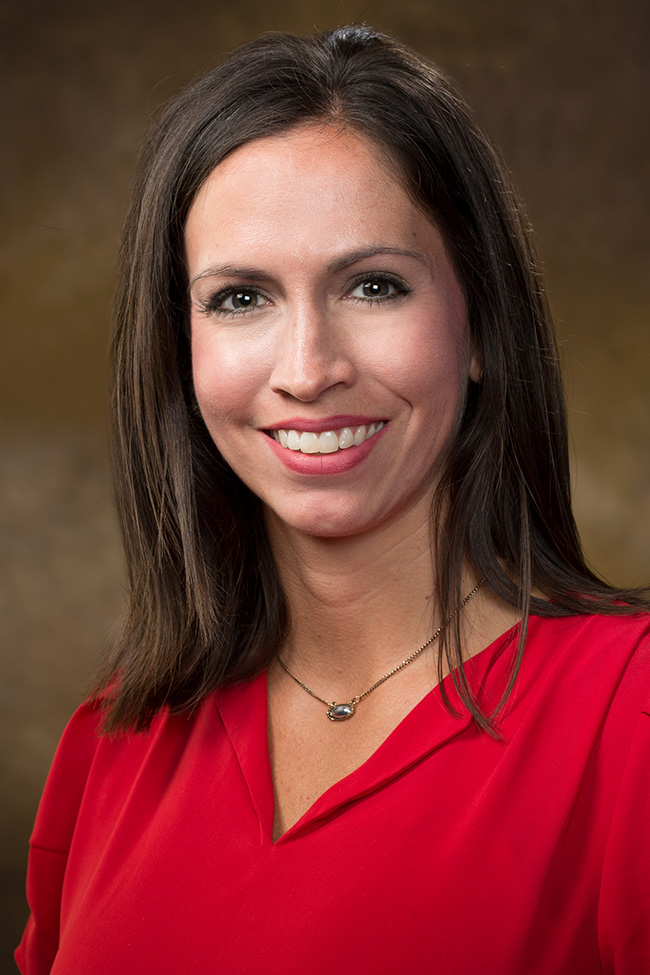Her background in counseling and leadership led Kara Lasater to develop a passion for strong family-school partnerships.
Lasater moved into a tenure-track assistant professor's position in the University of Arkansas educational leadership program this fall. She had been working as a visiting assistant professor in the College of Education and Health Professions for three years and was a visiting research associate for one year before that.
After receiving a master's degree and an educational specialist degree, both in counseling from Pittsburg State University in Kansas, Lasater took her first position in education with a university-based nonprofit program that assessed and tutored children with reading and attention difficulties. She also has a bachelor's degree in psychology and sociology from Drury University in Missouri.
Her work over three years as director of operations for the program, along with another year working part time in a truancy diversion counseling program, sparked her interest in pursuing a doctoral degree in education. After meeting U of A professor John Pijanowski during a visit he made to Pittsburg State, Lasater chose the U of A's online program in educational leadership and focused her dissertation research on the development of family and school partnerships.
Now, she's enjoying her role teaching in the program.
"This position allows me to utilize my background in both counseling and educational leadership," Lasater said. "I hope to use my experiences and research to support teachers and leaders as they work to create meaningful partnerships with families."
Parents and teachers share the same interest in children doing well at school, but Lasater has found that, once conflict between the two exists, it often goes unresolved.
"Often, teachers and leaders are not trained or prepared to work effectively with families, and families do not always understand how to appropriately advocate for their children," she said. "Each is trying to support the child, but both parties often need improved partnership efforts."
The way schools and families work together also influences students' attitudes, Lasater said. When conflict occurs, a child may feel a parent's support means he or she doesn't have to listen to the teachers or principal, and tension between families and teachers can create stress and anxiety for students.
While she teaches courses on qualitative research methods and effective leadership, Lasater continues researching unique approaches to teacher and leader preparation for family-school partnerships. She also conducts research to examine the complex issues surrounding family-school partnerships.
"Teachers and leaders must partner with families from diverse backgrounds," she said. "Every family is unique, so the challenge for educators is learning to build partnerships that meet the unique needs and utilize the unique strengths of each family. We also need to learn more about partnering with families experiencing substance abuse and mental health issues, as well as families who are disengaged from educational processes."
One of the reasons Lasater enjoys teaching in the educational leadership program is because of its synchronous online course-delivery. The educational leadership faculty has chosen to use a feature of the U of A's online course-delivery system that allows faculty and students to meet virtually at a set class time.
"We try to mirror the traditional classroom environment. We use the synchronous class meetings to facilitate dialogue and develop relationships with students," Lasater said. "We see our students' faces, who are now located all across the United States, and they see us. As a faculty, we are always talking about how to connect with students and make them feel like true members of the U of A community. We value being able to meet this way."
Topics
Contacts
Heidi S. Wells, director of communications
College of Education and Health Professions
479-575-3138,
